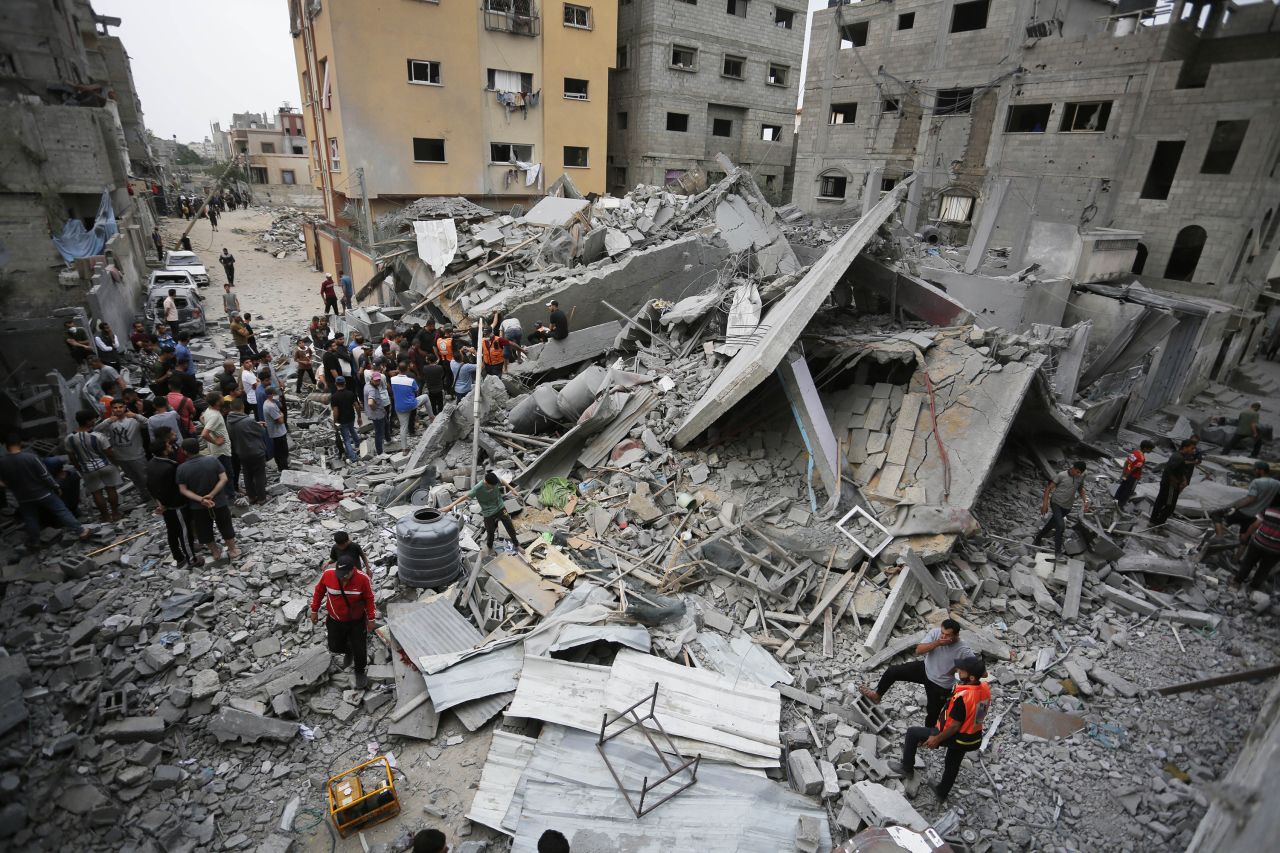At least 47 people have been killed, including children, in Israeli airstrikes in northern and central Gaza Friday evening and overnight, according to three hospitals in the area.
Among those killed were journalist Bahaa Okasha, his wife and 12-year-old son, in an airstrike on the Kasasib neighborhood in northern Gaza’s Jabalya refugee camp, according to Kamal Adwan Hospital.
Three others were killed in a separate airstrike in Jabalya, the hospital’s director, Hussam Abu Saifiya, told CNN.
Al-Aqsa Martyrs Hospital also said it received 30 bodies overnight in strikes that hit Al-Maghazi, Al-Masdar village and Al-Zawaida in central Gaza. The figure includes 20 children, according to the hospital’s initial estimate.
The hospital is still receiving bodies through Saturday morning as more are retrieved from under the rubble, according to a CNN stringer there.
Al-Awda Hospital said it also received 11 bodies from two different airstrikes in Nuseirat in central Gaza on Friday evening.
A CNN stinger at the hospital filmed several children treated earlier in the day who were injured in airstrikes, including one boy who had a severed arm.
What the IDF says: In response to a CNN inquiry about the airstrikes, the IDF said it was “operating to dismantle Hamas military and administrative capabilities.”
“In stark contrast to Hamas’ intentional attacks on Israeli men, women and children, the IDF follows international law and takes feasible precautions to mitigate civilian harm,” it added.
This post has been updated with comment from the IDF.





















